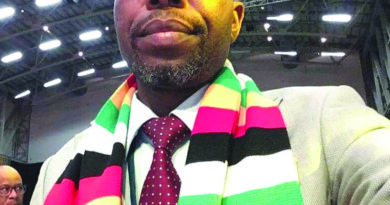A New Era of Black Colonial Rule
Zimbabwe finds itself in a dire state of crisis, often described as a new form of black colonial rule. Under the leadership of President Emmerson Mnangagwa, the country is witnessing a consolidation of power among a small group of black elites who have effectively taken control of the nation’s political, judicial, and military institutions. This alarming shift raises questions about the future of democracy and governance in Zimbabwe, as well as the rights and freedoms of its citizens.
Since the ousting of former President Robert Mugabe in 2017, Mnangagwa promised a new era of prosperity and democratic governance. However, the reality has been starkly different. The ruling elite, composed of individuals who have benefited immensely from the country’s resources, have established a regime that operates much like a colonial administration. Decisions affecting the lives of millions are made behind closed doors, with little to no input from the general populace.
The judiciary in Zimbabwe, once seen as a potential check on power, has become increasingly subservient to the ruling elite. Judges who dare to challenge the status quo face intimidation and threats, leading to a lack of judicial independence. This erosion of the rule of law means that the elites can act with impunity, enacting policies that serve their interests while ignoring the needs of ordinary Zimbabweans.
The police force and military have also been co-opted to maintain the status quo. Security forces are deployed to suppress dissent, often using excessive force against peaceful protesters. Those who dare to challenge the ruling party’s authority are routinely charged with treason, facing lengthy detentions without bail. This climate of fear stifles political activism and silences critical voices, effectively quelling any hope for meaningful change.
Economic conditions in Zimbabwe have worsened dramatically under Mnangagwa’s rule. The country faces hyperinflation, unemployment rates soar and basic services are in disarray. The elites continue to enrich themselves while the majority of citizens struggle to make ends meet. Corruption is rampant, with resources being siphoned off by those in power, exacerbating the already dire situation.
Internationally, Zimbabwe’s reputation has suffered as human rights abuses become more widely documented. The government’s heavy-handed tactics have drawn condemnation from various human rights organisations, churches and foreign governments. Yet, despite this pressure, the elites remain entrenched, their grip on power seemingly unshakeable.
Calls for reform and a return to democratic principles have grown louder, but the ruling elite shows little inclination to listen. With those within the rank and files that challenge the status quo being expelled from the ruling party. The opposition parties, although active, are fragmented and lack the resources to mount a serious challenge to Mnangagwa’s regime. The political landscape remains perilous, with many citizens feeling disillusioned and powerless.
Zimbabwe is facing a profound crisis as it grapples with a new form of colonial rule under black elites. The erosion of democratic institutions, coupled with rampant corruption and economic decline, paints a bleak picture for the future. The international community must remain vigilant and supportive of the Zimbabwean people as they navigate these turbulent times, striving for a return to democracy and the rule of law. Without significant change, the cycle of oppression and disenfranchisement may persist, leaving future generations to bear the brunt of a nation in crisis.
Engineer Jacob Kudzayi Mutisi




